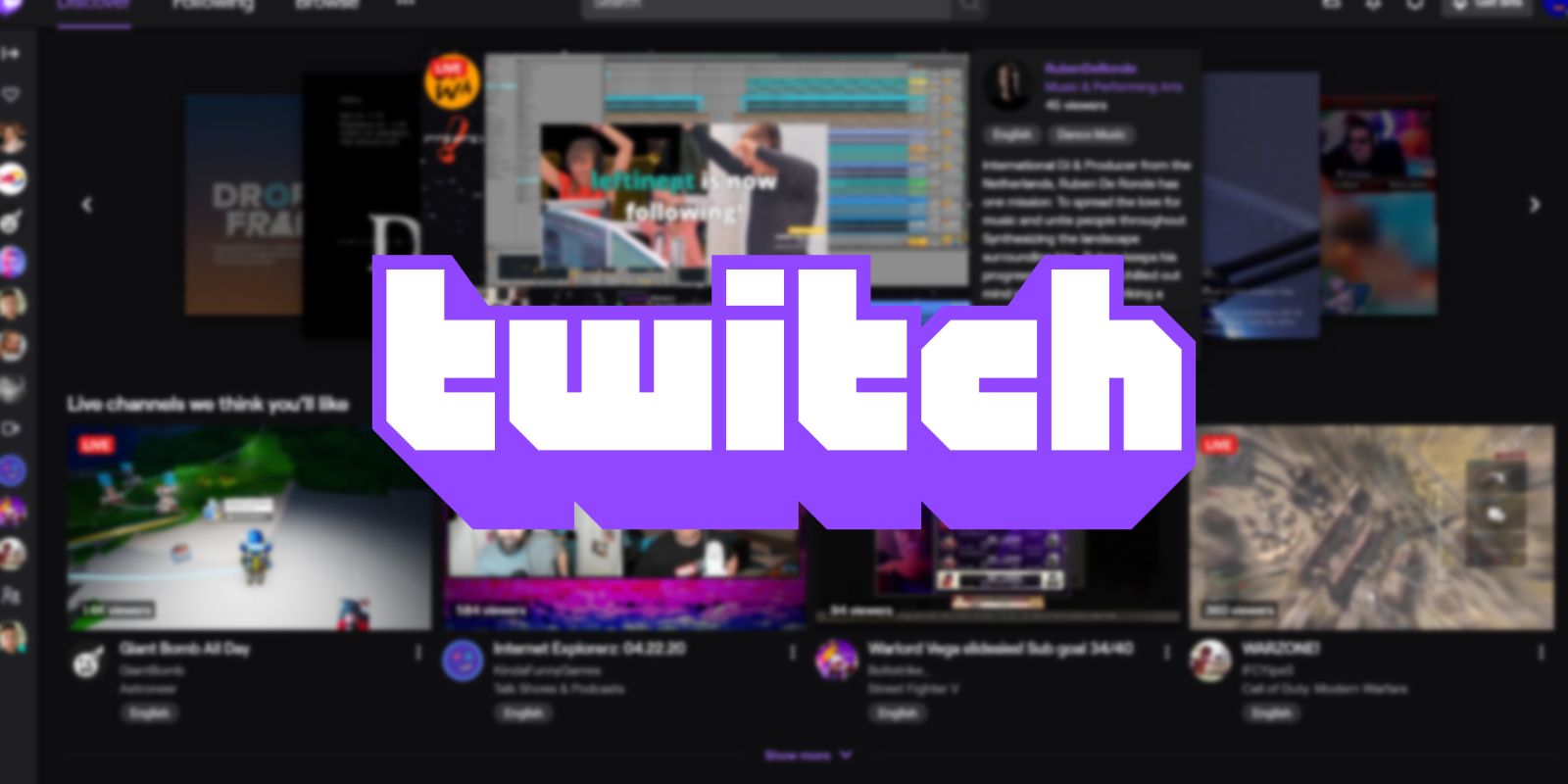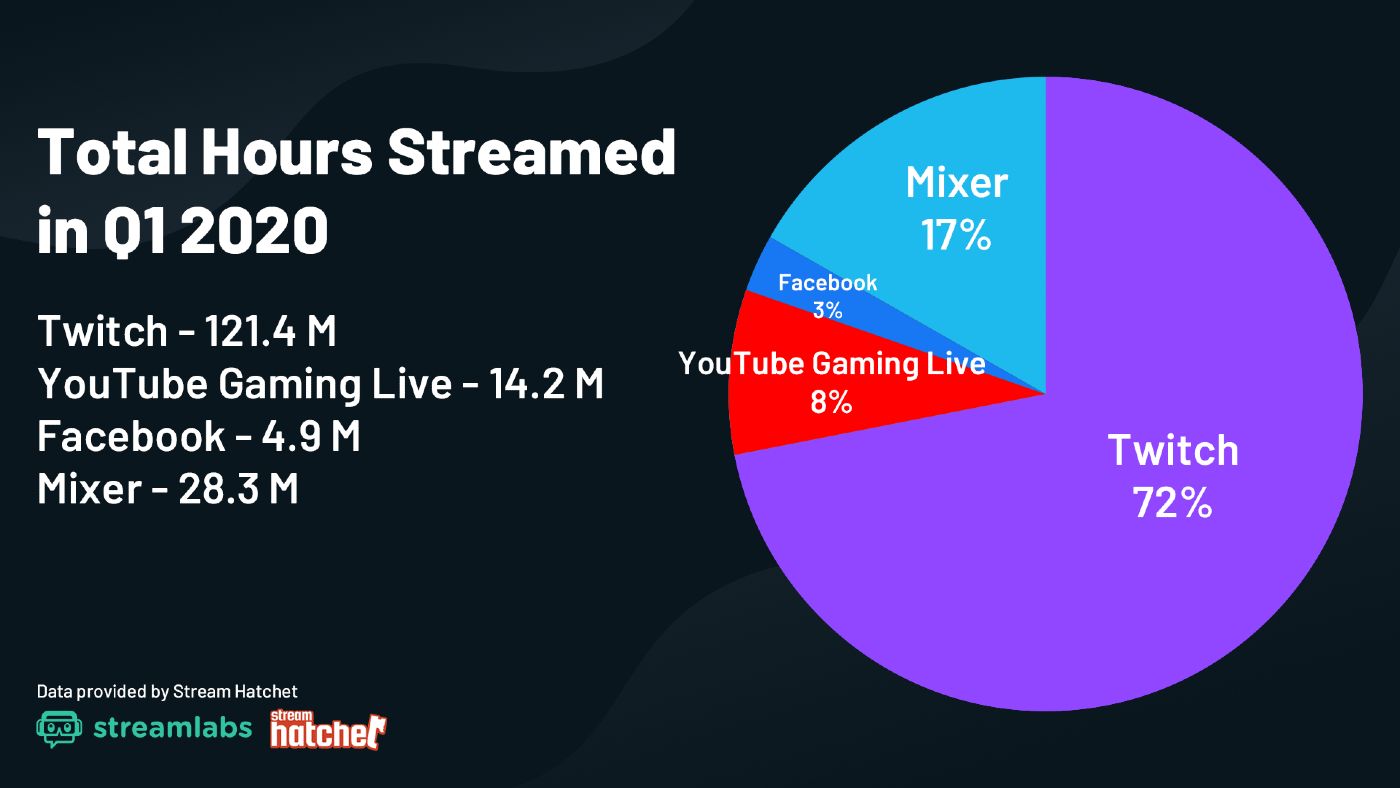Since live streaming video games became a staple of entertainment during the previous decade, Twitch has always been the preferred platform for streamers and their viewers, even over Facebook and YouTube. It clearly outperforms its most direct competitor, Mixer, which is understandable given that Mixer is the new kid on Twitch's block. The question is, why is Twitch considered to be so much better than significantly larger social media platforms for streamers looking to build an audience?
Facebook and YouTube entered the world of live streaming video games years ago. YouTube shut down its dedicated app, YouTube Gaming, a long time ago. Facebook just officially launched one of its own this week. Both platforms continue to add features to their offerings, while also signing exclusive streamers who, of course, made their names on Twitch. But their biggest strengths, which make this phenomenon even crazier, are their user numbers. YouTube and Facebook have over 50 million daily active users and Twitch has about 15 million.
Despite it being a smaller platform, both streamers and viewers prefer Twitch because it established its identity from the beginning. Facebook is a social media platform specializing in having people interact with friends they already know, or with whom they share similar interests. YouTube is known for the vast quantity of videos it has about everything. Twitch does game streaming, period. It's not a platform with a different focus, trying to branch into gaming. That specificity has worked well for the site and its owners, and the success of that philosophy has trickled down, impacting content creators and the viewers who support them.
How Twitch Focuses on Its Niche
Viewers who want to watch people play a video game know how to do that with Twitch. Upon either opening the Twitch app or visiting the website, multiple live streams are literally a single click away. The homepage offers up featured streams a visitor may not already follow, a list of live streams from creators they already follow, and an easy way to search for streams on a game-by-game basis. Even before reaching Twitch's home page, it's easy to get to a specific live stream with just the creator's URL, because if someone is live, visiting their page immediately opens their live stream.
Facebook and YouTube, both in their respective apps and in a browser, make it too difficult to find streams. Each has a dedicated website for gaming-related content, but even those lack a focus on streaming, as both platforms have taken the approach of sectioning off anything one would call gaming into its own space. On these services, millions of people could be live streaming at any moment, but without going out of the way to check the gaming sections, users are completely oblivious to that. Hardly any of those broadcasts float to the home page. Given a channel name and a URL, it's tough to find live videos for a specific creator, even as they're live.
It's not even necessarily a bad thing that Facebook and YouTube fail to prioritize live gaming videos. These are platforms that have become household names, revolutionizing and validating their entire industries without a gamer in sight. They serve so many millions of people in other ways that surfacing gaming feeds would probably just add to the distractions. There's certainly a middle ground they could find that would make them more meaningful to gamers without interrupting other users' habits, but nothing they do will change that Twitch has put games at the forefront for a decade now, and will continue to do so. Twitch embraces the idea that watching people play games isn't for everyone, but for the 15 million or so people who want that every day, it needs to be readily available. That brand recognition is ingrained at a societal level and probably always will be.


